How elections work in
Nevada
Thousands of Nevadans work tirelessly to make sure your ballot can safely and securely become a vote.
Learn more about what goes into every step of this process.
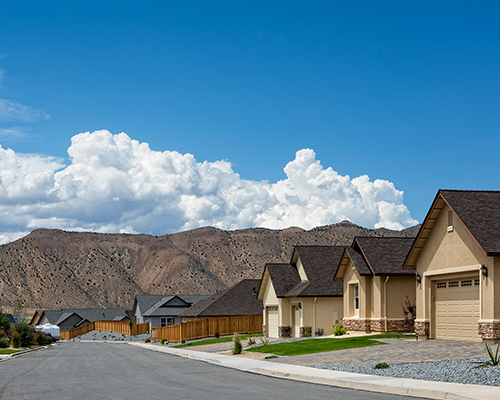


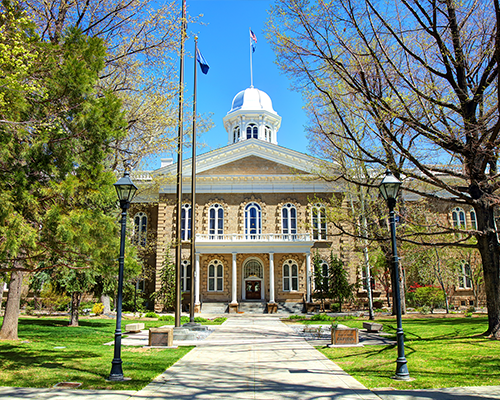
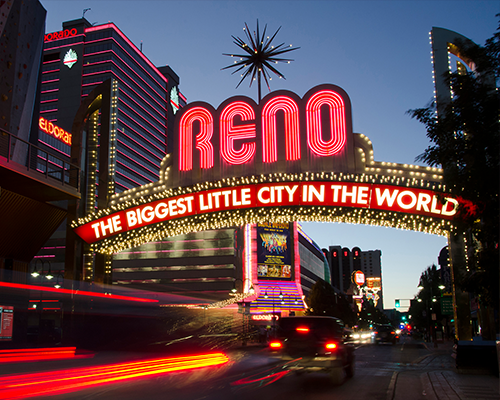
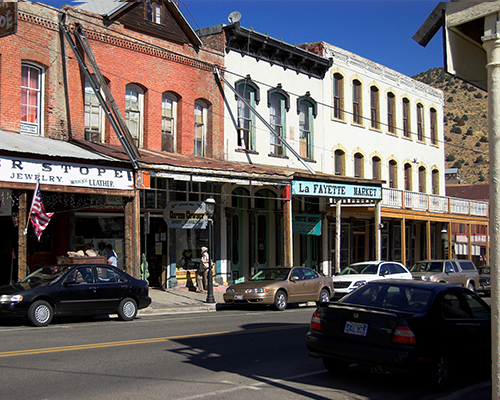

1
WHO RUNS NEVADA ELECTIONS?

Elections in Nevada are run locally, by 15 county clerks and 2 registrars of voters who operate with state oversight. Together, more than 4,500 election workers and officials ensure Nevada’s elections are safe, secure, and accurate.
These public servants are Republicans, Democrats, and independents who live in your community. They are also your neighbors, and across the state they include supporters of every candidate on the ballot. They put aside partisan preferences and work together to ensure that each election runs smoothly, and that each and every vote is secure and counted accurately.
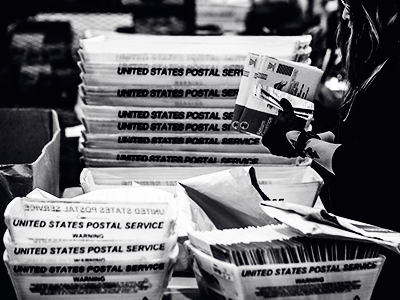
2
WHO CAN VOTE?

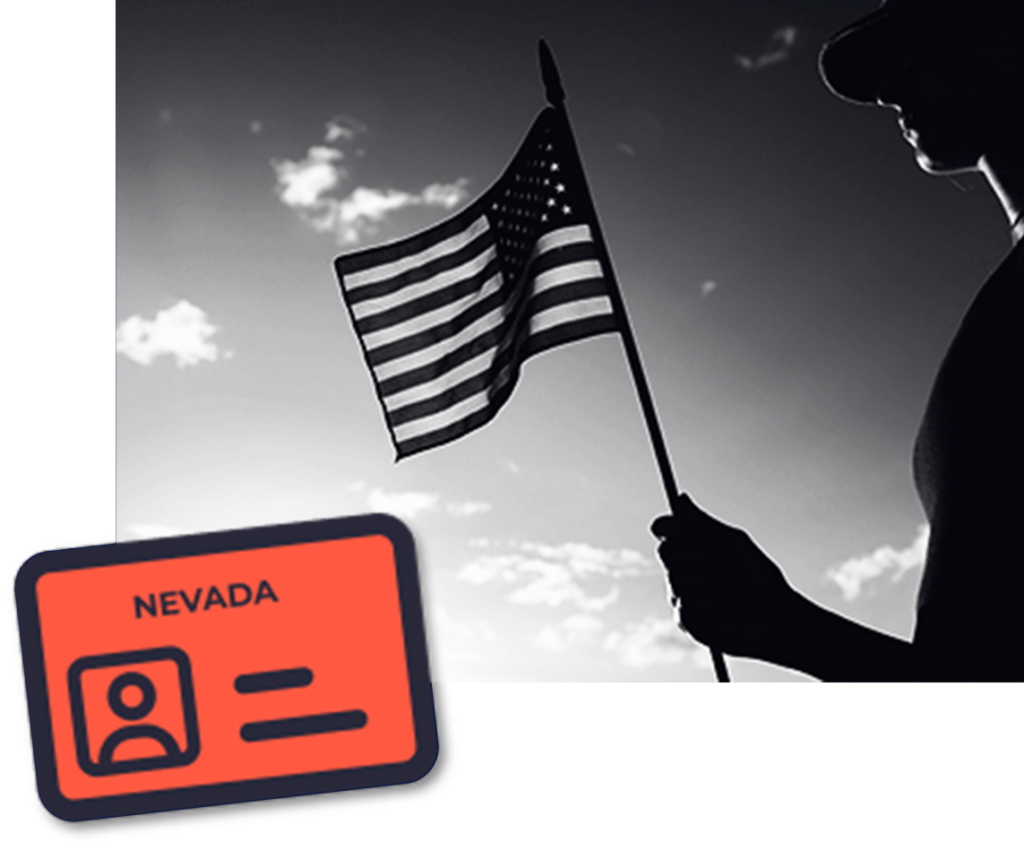
In order to be eligible to vote in elections in Nevada, you must be:
- At least 18 years of age on or before Election Day;
- A U.S. citizen
- A resident of Nevada for 30 days prior to the election you will vote in;
- Not currently imprisoned for a felony; and
- Not have been declared by a court to be mentally incompetent.
In Nevada, the state voter registration system includes numerous automatic checks when someone registers. This ensures anyone trying to register is eligible to vote and their information is accurate and up to date. When a person registers to vote, election officials verify application information against the records of the Nevada Department of Motor Vehicles (DMV), the Social Security Administration (SSA), the Office of Vital Statistics, and existing records within the Statewide Voter Registration List.
After registration, election officials also conduct ongoing, routine checks of the entire system to make sure that all voters continue to meet the requirements and to make sure the “voter roll”—the list of all registered voters in the state—is up to date. Nevada, like many other states, provides public access to its voter rolls upon request.
Get more information on where, when, and how to vote in Nevada elections here.
Like all other states, Nevada routinely removes deceased voters from the voter rolls using information from a number of official sources, including Social Security Administration records and death records from an interstate database called the Electronic Registration Information Center, or “ERIC”. ERIC helps states across the country share information to keep their voter rolls accurate when people move or pass away, for example.
Non-citizens, whether they are in the U.S. legally or illegally, are not permitted to vote in state or federal elections in Nevada. It is against the law for non-citizens to vote in these elections, and there are strict processes and multiple safeguards in place to make sure the law is followed.
Before anyone is officially registered to vote, local election officials make sure that all of their information matches with the Department of Motor Vehicles and Social Security Administration. If this matching process fails, even after the county contacts the applicant to confirm their information, the applicant will be unable to vote unless they appear to vote in person and provide photo identification and proof of residency.
Most Nevadans register to vote at the DMV, when they are updating their driver’s license or handling vehicle registration. This means that prospective voters have their identifying documents on hand at the point of registration – and if an individual shows the DMV an immigration document such as a green card, they cannot register.
Primaries and Caucuses: In Nevada, you can only vote in the primary of a specific political party if you are a registered voter of that party. Registered Democrats may only vote in the Democratic primary, and registered Republicans may only vote in the Republican primary. If you are registered as an unaffiliated voter, you may not vote in the primary of either major political party. However, unaffiliated voters may still vote in nonpartisan primary contests – like elections for local judges – in their community. Political parties may choose to hold a self-run caucus separate from the state-run primary.
General elections: In elections that are not party primaries, like the general election in November, all Nevadans who are registered can vote for candidates in any political party. For example, in the 2024 general election, if you are an unaffiliated voter, you can vote for candidates from any party.
Note that elections are held at the local, county, state, and federal levels and can take place at different times of the year. A complete calendar of Nevada elections can be found here.
3
HOW DOES NEVADA PREPARE FOR ELECTIONS?

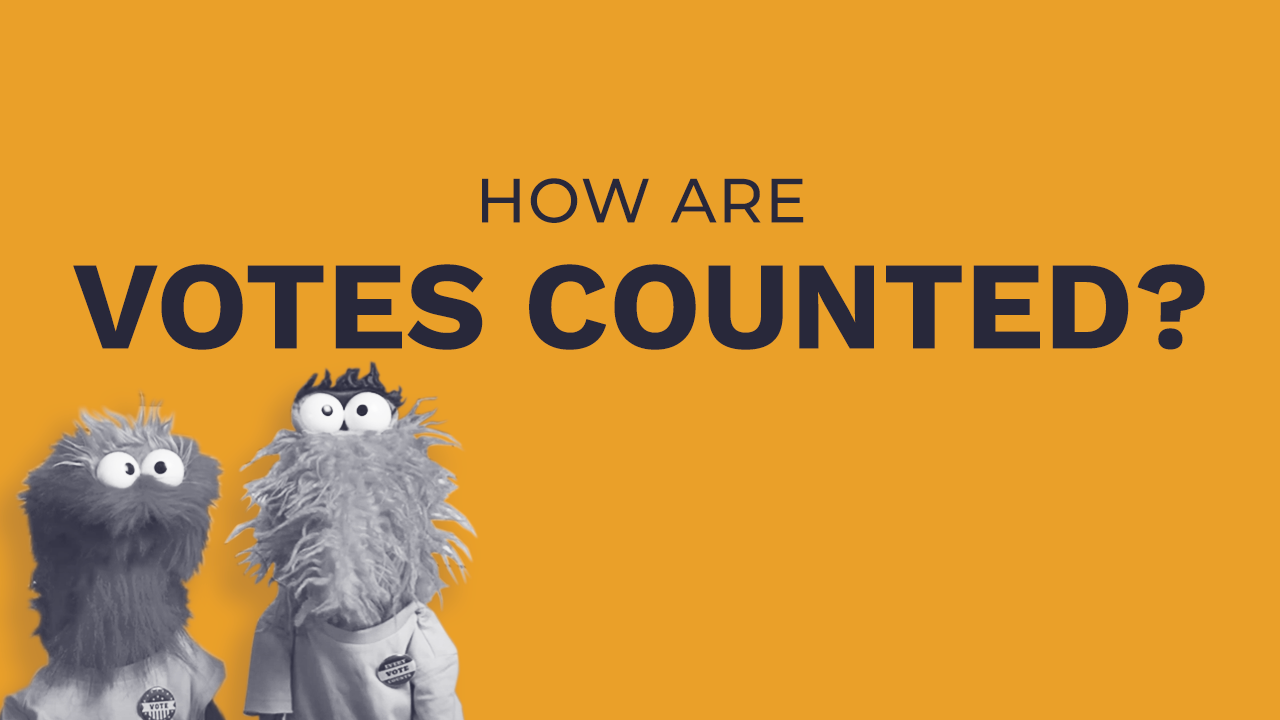
Nevada’s election officials spend months getting ready for each and every Election Day – whether it’s a primary or general election. This includes:
- Hiring and training a team of bipartisan local election workers on how to staff polling places, process ballots, and more.
- Following state law to determine locations for polling places and secure ballot drop boxes, as well as the hours and days those will be available. In a presidential election, there are more than 200 polling places spread across the state’s 16 counties and Carson City.
- Routinely testing voting machines. County or city election officials safely store, test and seal each voting machine to make sure it is secure and working properly before any votes are cast.
4
HOW DO YOU GET & CAST A BALLOT?

As of 2022, Nevada is a universal vote-by-mail state, which means all active registered voters receive a ballot in the mail unless they opt out. You can also vote in-person in Nevada on Election Day or during the early voting period, which runs from the third Saturday before Election Day through the Friday before Election Day (excluding Sundays and federal holidays).
Nevada law requires that every vote cast—in person or by mail—has a paper record. This is how the state makes sure that there is a record, which can be checked by the voter who cast the ballot, of each and every vote.
Once you decide how you want to vote, it’s time to submit your ballot! You can do that…
By Mail
After receiving your ballot, you may return it by mail. All ballots must be postmarked on or before Election Day and received by your county’s election department by 5:00 p.m. on the fourth calendar day after the election in order to be counted.
Via Secure Drop Box
Secure ballot return sites or “drop boxes” are available for voters to use in Nevada.
All ballot drop boxes must be made of metal or a rigid material strong enough to hold and protect the security of ballots and capable of being locked. Only authorized retrieval teams by county officials collect ballots from secure drop boxes.
In-Person
In-person ballots can be cast during the early voting period or on Election Day.
You can also return the ballot you received in the mail to your county clerk’s office in person during operating hours.
5
HOW ARE BALLOTS KEPT SECURE?

Nevada uses approved, certified voting machines that are routinely tested and maintained by election officials to ensure they work correctly during the election. These machines are never connected to the internet.

All ballots in Nevada are subject to strict chain-of–custody requirements, which means election officials are required by law to monitor and track every ballot through each stage of the collection and counting process. These chain-of-custody requirements apply to all ballots—whether they are returned in the mail, placed in a secure drop box, or cast in person.
Mail ballots are secure because they are tracked through the collection and counting process. Mail ballot drop boxes are secure because they are locked and only accessible to authorized election officials.
Mail voting has a long history of being safe and secure and has been used across the country since the Civil War. A new law passed by the legislature in 2021 made Nevada an all vote-by-mail state, which means all active registered voters receive a ballot by mail—unless they opt out.
6
HOW DO I KNOW VOTES ARE COUNTED ACCURATELY?

Vote counting is overseen by the election workers (also sometimes called “election officers”) in your county. Members of the general public can also sign up to serve as an “observer.” Observers are permitted to observe the voting process alongside local election workers to ensure transparency.
Nevada counties use approved and certified ballot tabulation machines to count ballots and securely tabulate the results. Election officials can begin processing and counting ballots returned by mail or in drop boxes up to 15 days before Election Day. This includes the process of verifying voter signatures on those ballots. Ballots cast early in person are not counted until the morning of election day. Initial results will not be released until the polls close, as required by law.
Results announced on election night reflect only an initial tally of all votes cast and are not official results. Likewise, projections or exit polls about election outcomes made by the media are not official. Only the final, certified results of Nevada elections are official. The official results take time to verify and are often not finalized until a week after the election.
All votes in Nevada have a paper record, which means that results can be professionally audited and examined. Nevada elections offices are required to conduct post-election audits to verify that the results are accurate and the election was conducted correctly and according to state law.
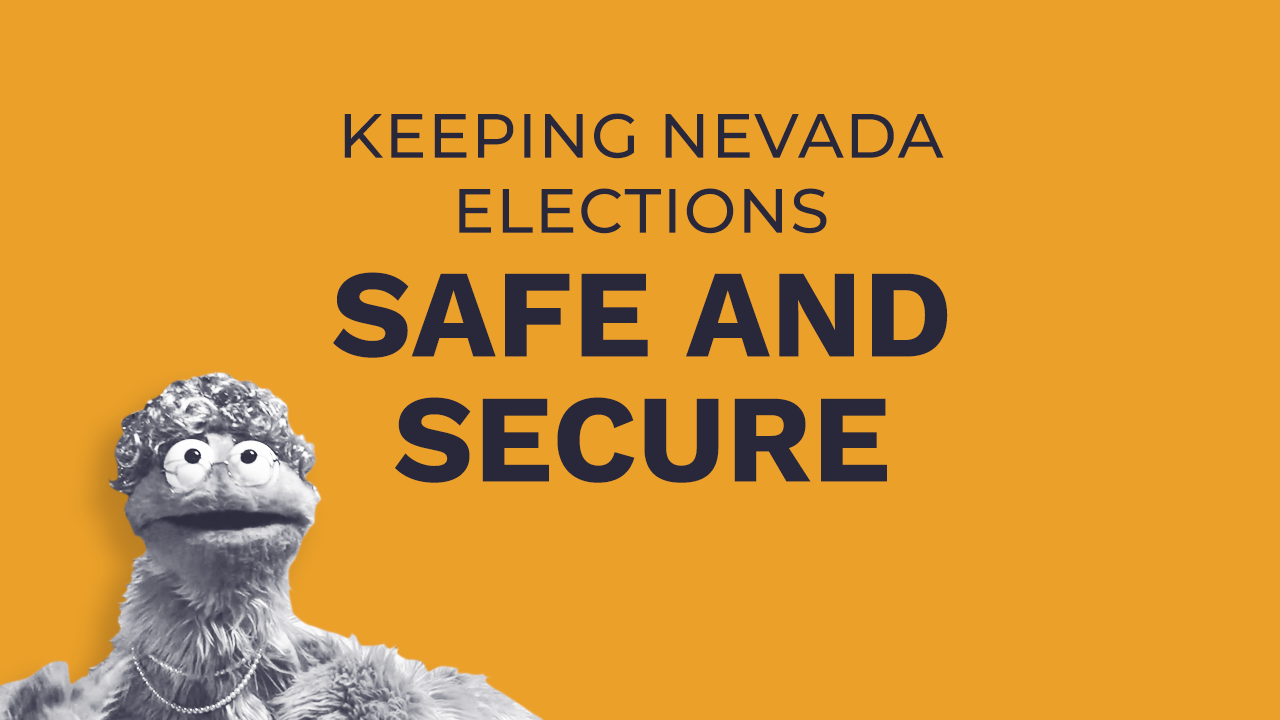
7
HOW ARE RESULTS VERIFIED?

Local election officials are in charge of overseeing the tabulation of all votes, whether the ballot is returned by mail, a secure drop box, or cast in person during the early voting period or on Election Day. First, they conduct a preliminary count and send that information to the Secretary of State. After reviewing the count to make sure there are no errors, the Secretary of State uploads the “unofficial” initial count to an election results website that tracks unofficial results from across the state.
After Election Day, local election officials, supported by local counting boards, continue to review all mail, provisional, illegible and Effective Absentee System for Elections (EASE) ballots. They contact voters individually to remediate any resolvable issues. During this time, these county election officials also “canvass,” or finalize, these results, which means that they review the results again and investigate and resolve any inconsistencies. Once the total vote in their county is finalized, local officials meet to present and certify the final vote count. This county canvass must be completed by the 10th calendar day following the election. Following the completion of this process, the local officials publish the final, certified results.
On the fourth Tuesday in November—three weeks after Election Day—the Secretary of State convenes a state-level canvass with a majority of Nevada Supreme Court justices. There, they present and certify the entire state’s election results based on all the counties’ final results. Once the state’s vote count is certified, the statewide results become final, though it may still be subject to an official contest challenging the election. Any official election contest must be filed no later than five days after a recount, or 14 days after the election if no recount is demanded. The election contest will then (depending on which elected office is contested) be decided by a court, a chamber of the Nevada legislature, or a joint session of both houses of the Nevada legislature.
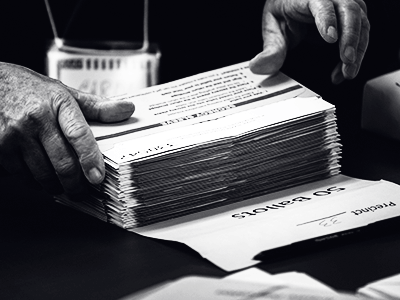
There is no law requiring automatic recounts in Nevada, but candidates and voters can request them in many elections in accordance with state law. In most elections, recounts must be requested within three business days of the state-level canvass, must be started within five days after the request, and must be completed within five days after the recount starts.
In presidential elections, recounts may be requested by any party, by any candidate. This request must be made by the 13th calendar day following the election. If the request is granted, the recount will begin within one day of the request, and must be completed within five days.
FREQUENTLY ASKED QUESTIONS
You may still have questions about how elections work in Nevada!
Here are some of the most common:
There are a variety of trusted and reliable sources of information about Nevada elections, voting, and results.
The Nevada Secretary of State’s website has up-to-date information on when, where and how to vote, information on election security, and a helpful Elections FAQ page. They also have an election website that will be updated as results come in.
Your local election office is also a great place to turn with any questions. Many elections offices maintain up-to-date websites and social media accounts to keep voters informed. You can also call them with specific questions. To find your local elections office, click here.
Trusted local news sources like your local or regional newspaper, radio, or TV station can have up-to-date information about what’s going on with elections near you.
In this day and age, this is, unfortunately, an important question. False information about voting and elections can easily spread online and on social media, so it’s always good to take a moment to consider the accuracy of any stories or claims you see.
Thankfully, Nevada has created an online database of information specifically designed to dispel some of the most common myths that have circulated about Nevada elections, as well as a site with election FAQs. Your local clerk is also a good source (find yours here).
This website provides a lot of easy to read, factual information about every step of the elections process in Nevada – who can vote, how to vote, how votes are counted, and how the process is kept secure.
Before you share or act on something you’ve read online, make sure the place you saw it is credible, verified, and has been backed up or supported by additional trusted sources.
There are clues and tools to help you hone your sense of whether what you’re reading online can be trusted.
Fraud in Nevada elections is extremely rare. In April 2024, the Nevada Secretary of State reported that “Double Vote cases represent 0.0001% of the 1,023,617 ballots cast in the 2022 General Election.” Voting twice is a felony, and persons attempting to vote twice are caught before the second vote is counted, and they are referred for investigation.
Likewise, in 2021, the former Republican Nevada Secretary of State concluded there was no evidence of fraud impacting the 2020 general election. Republican state officials also agreed with that conclusion. Claims that there was significant fraud in the 2020 election have been repeatedly investigated and dismissed by the courts, and no evidence has been found to support those claims.
Republican officeholders in Nevada who previously claimed that the 2020 election was impacted by fraud have since admitted there is no evidence to back up their claims.
Even experts hired by the Trump campaign to identify instances of voter fraud in the 2020 election did not find irregularities that would have changed the results. And the handful of instances of improperly cast votes that they did find included votes for candidates from both parties. These instances were investigated and nine cases were referred for prosecution.
Incorrect information about elections can spread quickly. You might see false information online on social media or in a text message or get it through a phone call.
If you see false information about where, when, or how to vote (or register to vote), it is a good idea to alert trusted officials directly.
Intentionally deceiving qualified voters to prevent them from voting is a crime. If you see clearly false information, you can report it to:
- your local election clerk; and or
- the Nevada Secretary of State
Nevada elections are run by trusted elections officials, often with years of expertise. Those election officials also rely on paid election workers and volunteers from the community, who help make elections happen by and for the people.
There are many ways for you to get involved in elections, including:
1) Registering to vote & casting your ballot.
2) Applying to be an election worker in your county by contacting your local elections official’s office.
3) Volunteering with your local political party or other qualified organization to be a poll observer. Both major political parties appoint observers in every Nevada election. People who do this help ensure Nevada elections are transparent and are trained in state election laws that help inform their work.